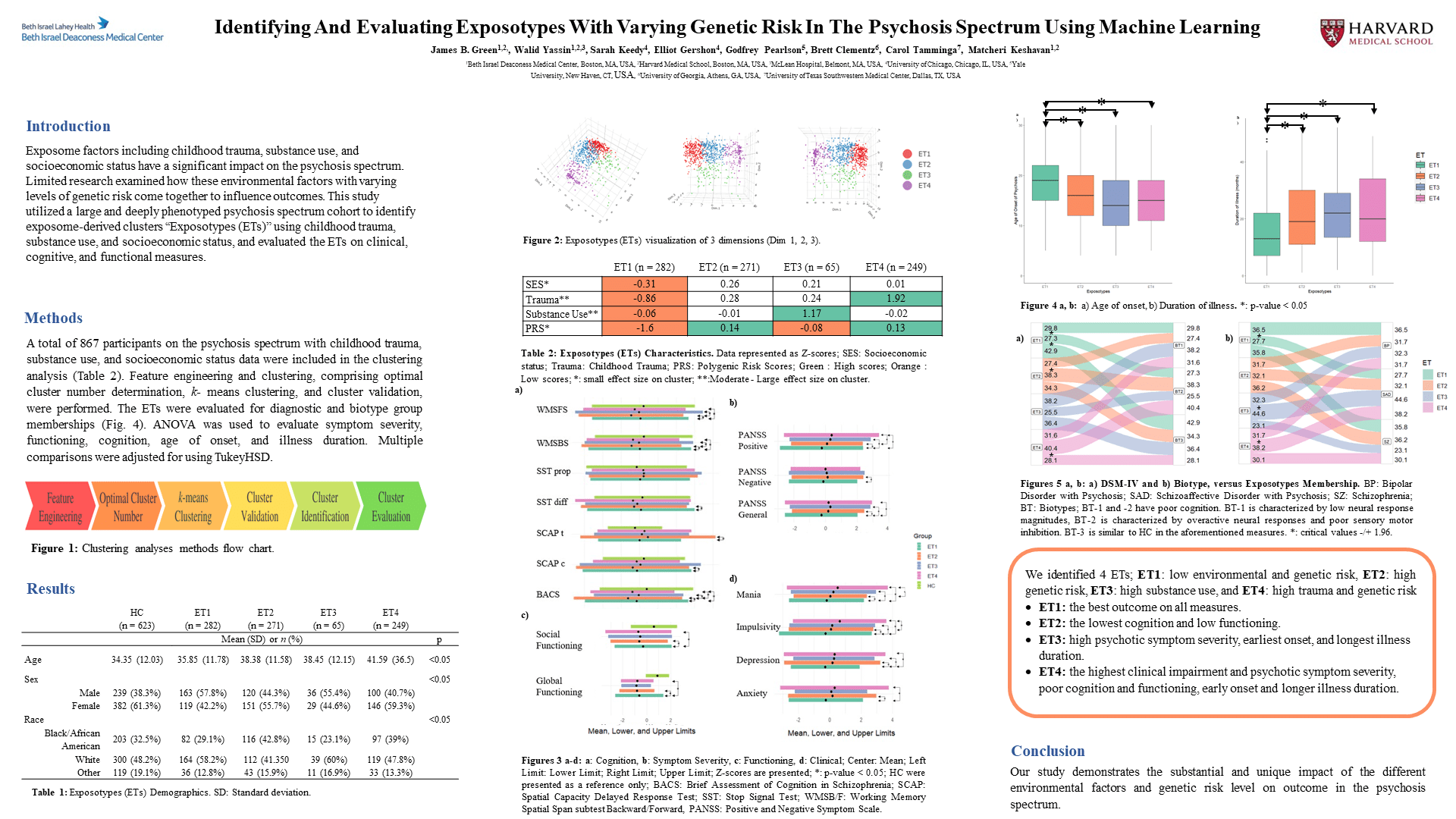Scientific Abstract
Background: Exposome factors including childhood trauma, substance use, and socioeconomic status have significant impacts on psychotic spectrum disorders. Limited research examined how these environmental factors with varying levels of genetic risk come together to influence outcomes. This study utilized a large and deeply phenotyped psychosis spectrum cohort to identify exposome-derived clusters or “Exposotypes (ETs)” using childhood trauma, substance use, and socioeconomic status, and evaluated the ETs on clinical, cognitive, and functional measures.
Methods: A total of 867 participants with SZ (n = 289), SAD (n = 289), and BPD (n = 289) with childhood trauma, substance use, and socioeconomic status data were included in the analyses. Feature engineering and cluster analysis, comprising of optimal cluster number determination, k– means clustering, validation, and identification were performed. Once clusters were identified, reflecting unique ETs, the genetic risk was identified using their polygenic risk scores. The ETs were then evaluated with Chi-squared for categorical variables i.e., differences between the diagnostic and biotype group membership, and ANOVA was used for the continuous variables i.e., differences in symptom severity, functioning, cognition, age of onset, and illness duration. Multiple comparisons were adjusted for using TukeyHSD.
Results: We identified 4 ETs; ET1 with low environmental and genetic risk, ET2 with high genetic risk, ET3 with high substance use, and ET4 with high trauma and genetic risk. By evaluating the clusters, we demonstrate that ET4 had the highest clinical impairment and psychotic symptom severity, poor cognition and functioning, early onset, and longer illness duration (p < 0.05). ET2 had the lowest cognition and low functioning (p < 0.05). ET3 had high psychotic symptom severity, earliest onset, and longest illness duration (p < 0.05). ET1 had the best outcome on all measures.
Conclusions: This study demonstrates the substantial and nuanced impact environmental factors and genetic risk have on outcomes in the psychosis spectrum.
Search posters

